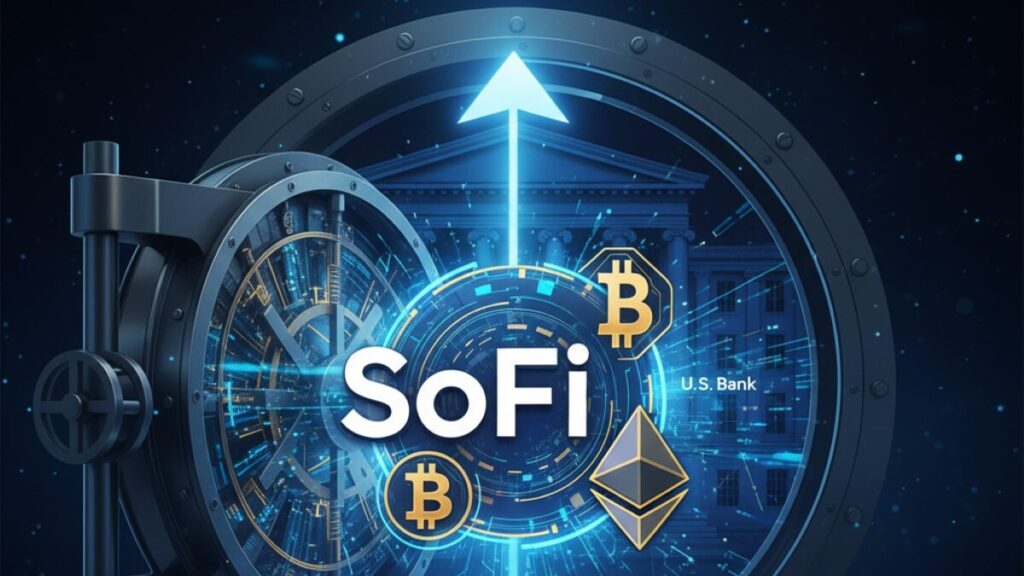TL;DR:
- SoFi becomes the first U.S. national bank to launch crypto trading.
- The platform integrates Bitcoin, Ethereum, and other assets within a regulated framework.
- Analysts view it as a landmark moment that could inspire more U.S. banks to follow, merging compliance with crypto innovation.
In a move that could reshape traditional finance, SoFi has become the first U.S. national bank to offer crypto trading directly to its customers, marking a major turning point in the industry’s integration with digital assets. The announcement underscores a growing shift in how regulated financial institutions approach crypto services, blurring the line between traditional banking and digital innovation.
SoFi’s bold step sparks new era in regulated crypto banking
SoFi’s crypto trading launch signals the dawn of a new banking paradigm, one where customers can buy and sell digital assets within a federally regulated banking framework. The offering, which includes Bitcoin, Ethereum, and a select group of leading cryptocurrencies, aims to combine ease of use with regulatory compliance. This step not only expands SoFi’s digital finance ecosystem but also positions the firm as a trailblazer among U.S. financial institutions.

The move arrives at a critical moment for the banking sector, as traditional institutions grapple with how to meet rising demand for crypto exposure while adhering to strict federal oversight. SoFi’s ability to secure approval to integrate crypto trading into its banking app demonstrates a rare alignment between innovation and compliance—a balance few have managed to achieve in the U.S. financial landscape.
Industry observers view SoFi’s initiative as a potential blueprint for others, suggesting that major banks could soon follow suit. The ability to offer crypto within a trusted, regulated environment could attract a new wave of mainstream investors who have previously hesitated to use standalone exchanges. Analysts note that SoFi’s decision could accelerate adoption by bridging the gap between legacy finance and Web3 infrastructure.
However, the move also invites regulatory scrutiny, as policymakers assess how traditional banks’ entry into digital assets affects systemic risk and consumer protection. Despite these challenges, SoFi’s achievement represents a major milestone that could redefine the boundaries of banking in the digital age, setting a precedent for how innovation and compliance can coexist in the evolving financial ecosystem.










